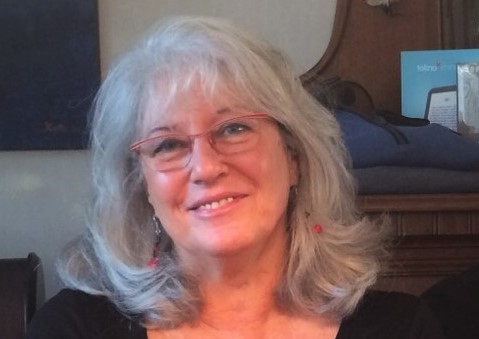Gina Roitman, Short story Writer and Biographer. In 1948, I was born in Passau, Germany although my parents resided in the DP camp at Pocking. We came to Canada when I was 19 months old and I have lived in Montreal all my life. I co-produced a documentary called “My Mother, the Nazi Midwife and Me” recounting how my mother may have saved my life by insisting she would not give birth in the DP camp where an inordinate number of babies were dying. When it was finally investigated in 1949, it was discovered that a midwife had killed some 60 Jewish babies. I am also the author of a book of short stories, “Tell Me a Story, Tell Me the Truth.”
In your opinion, what importance, if any, does the existence of a Jewish state have to you personally and to Jewish people in general?
“Without Israel, we in the Diaspora could easily become like the Roma, driven from place to place, with nowhere to call home.”
Do you feel committed in some way to defend the future existence of Israel?
“Yes, most certainly.”
Do you affiliate yourself with a specific confessional division in Judaism? What is your view regarding the dominance of the Orthodox division in Israel religious establishment?
“Extremists in any religion are to be watched carefully but orthodoxy on the whole keeps us from losing our centre.”
Do you feel morally responsible for Israel’s actions (such as its management of the Israeli-Palestinian conflict)?
“Yes. As Jews, the sense of responsibility for the act of any Jew – good or bad – has been inculcated into our genes.”
In your opinion, what is the main thing Israelis fail to understand about the reality of being Jewish outside of Israel?
“That without us in the Diaspora, their existence would be as impossible as ours without them, and therefore, we are all answerable to each other.”
How would you describe Israel’s policy (formally and in practice) regarding its relationship with the Diaspora?
“I believe Israel sees the vast majority as a source of revenue and levers to be moved about to exert pressure when and where it is needed.”
In your opinion, does Israel have an obligation to defend and help Jewish communities in need?
“Yes but not to create that need for Jewish communities to be helped.”
Have you ever been to Israel? if you have, can you summarize your impression from the Israeli reality?
“I have been to Israel three times, with 20 years separating the visits. Each time, my impression was different because Israel would change tremendously in the 20 years I was away. But no, I cannot summarize the impression from the Israeli reality except to say that they see anyone who differs from their point-of-view as naive.”
Can you tell us a bit about the Jewish community in your hometown? Is it organized? Are there community activities?
“At one time, Montreal was home to the second largest group of Holocaust survivors outside of Israel. I grew up in a city divided between French and English, have and have-nots and, within the Jewish community, between the greeners (greenhorns who came after WWII) and the galers (the yellows who had mellowed and found a place of relative comfort between the two solitudes).”

